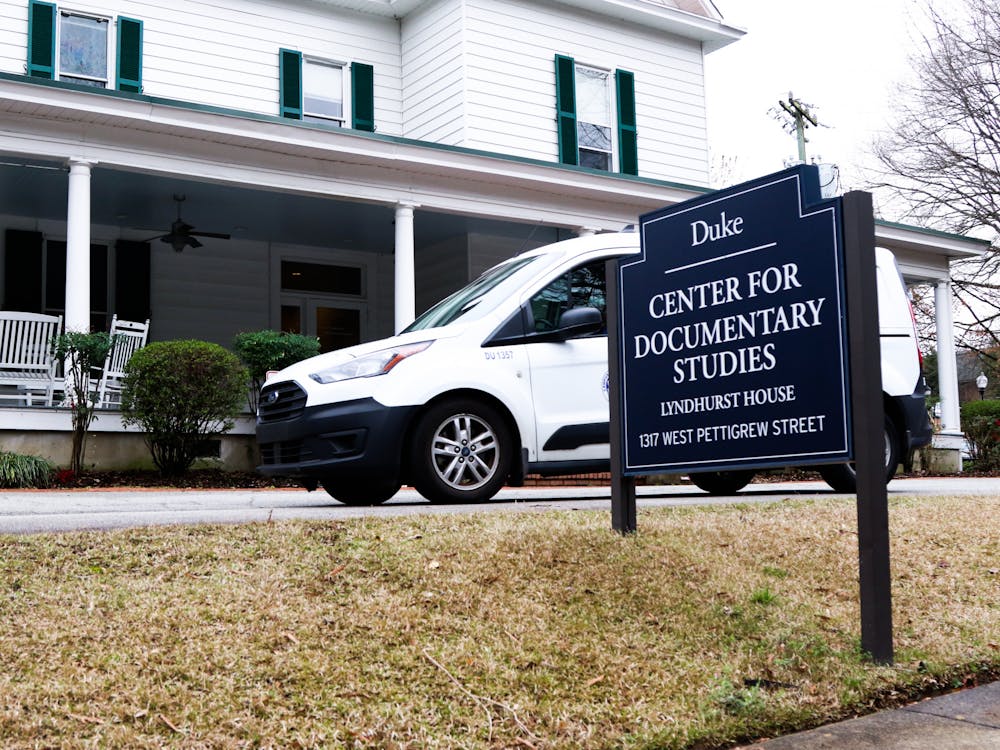First the programming went. Then the people.
Over the last year and a half, most of the work at the Center for Documentary Studies, a nonprofit affiliate of Duke that is nationally renowned, has come to a halt. No longer does it offer its continuing education courses, exhibitions and financial awards for filmmakers. Most notably, the Full Frame Documentary Film Festival — a qualifying event for nominations for the Academy Awards — was canceled in November for the first time since 1998.
At least seven staff members have been laid off, with an additional nine voluntarily departing, according to reporting from The Assembly. Full Frame’s interim director and artistic director resigned recently as well. Once at 45 members, the center’s staff is down to at most 23, as of mid-April. The resignations extend beyond staff — two weeks ago, four board members, who shape the center’s goals and manage its finances, also left.
Staff, students and community members have been left wondering what, exactly, went wrong in the last year and a half. Some have pointed at the center’s director Opeyemi Olukemi, who began her term in 2021, saying her leadership style resulted in a demoralizing working environment. Others, including some of the center’s board members and Olukemi, say the center is facing a financial crisis and are calling for a new vision, curriculum and mission.
Olukemi did not respond to The Chronicle’s multiple requests for comment for this piece.
Now the future of the center remains uncertain as Duke administrators consider, among other things, what the “appropriate relationship” should be between the University and the center moving forward. While classes for Duke students on documentary studies still continue, many have worried about what an extended pause and a rebrand could mean not only for the institution, but also for the promotion of documentary studies at Duke, Durham and nationwide.
“We are all left wondering how the programming and classes we have all benefited from could possibly be saved,” wrote CDS community members in a March column calling on Duke administration to conduct a review into the center.
The University then announced on April 11 that it had convened a review committee to examine the center’s infrastructure and how CDS “can best respond to the challenges and opportunities before it.” A key issue the committee will consider is the “appropriate relationship between CDS, currently a Duke support corporation, and the rest of the University.”
“I have heard that the major charge of the committee is to recommend how CDS should stay within Duke or if it should be separated,” wrote Tom Rankin, professor of the practice of art and documentary studies and a former director of the center for 15 years, in an email to The Chronicle. “My prediction is that CDS becomes closer structured under Duke, but that’s just a feeling.”

‘Plain walls with holes’
Vit Motta, a master of fine arts candidate in experimental and documentary arts, came to Duke specifically for CDS. She was drawn in part by the center’s Peabody-nominated documentary podcast, “Scene on the Radio.”
Once at Duke, she was excited to participate in Full Frame. To cultivate deeper relationships with undergraduates. To meet people, meet artists.
“I saw that as a vital part of my experience here,” Motta said. “That’s not something I’m going to get.”
Motta isn’t alone. Nora Zubizarreta, another master of fine arts candidate, grew up in Raleigh hearing about CDS. In high school, she went on a field trip to Full Frame, which partly shaped some of her interest in attending Duke.
“I was so excited to get to be near it,” she said.
She hoped to learn more about how documentary work is made in the South, teach students and learn from people at the center.
“I’m glad that I am getting to have the experiences that I am,” she said of her teaching assistantship with Documentary Studies 101. “But I wish that there was more of what was previously here.”
Get The Chronicle straight to your inbox
Sign up for our weekly newsletter. Cancel at any time.
Today Motta describes the center as “empty.” The building closes on the weekends, so students can’t process film or work there, she said. Last fall, she noticed the artwork on its walls were gone.
“CDS used to have art all around,” she said. “That’s very tangible. It speaks to the lack of individual relationships. Just these plain walls with holes that used to have beautiful art.”
Some describe how the recent efforts to reorient the center have led to fewer educational and professional experiences in documentary work.
“There's nowhere near as many events going on at the center. Visiting artists, lectures, readings by scholars, book events, there was always something going on there,” Rankin said. Students often attended these public events, and instructors would sometimes require students to write reflections on them as part of their classes.
“Maybe they checked a box in the class, but maybe they changed somebody's point of view,” Rankin said.
Senior Quinn Smith, a Chickasaw documentarian, has noticed the number of documentary studies classes offered dwindling each year he’s been at Duke. Motta noted that the center is one of the few departments that offer classes for her program. Even though she’s a graduate student, she finds herself taking 200-level classes for undergraduates to fulfill her degree requirements.
And by cutting programs outside of the certificate, Rankin says that the undergraduate education experience in CDS and in the arts is suffering, too.
“It’s part of an ecosystem,” Rankin said of the programs that CDS offers. “Our little network of documentary artists, we’re part of that, and the arts at Duke generally is an ecosystem … we’re interdependent. If one part suffers, it does affect the rest of us.”

Rumors have passed around the Duke community as the center’s silence leaves information gaps, said Chaya Brennan Agarwal, a senior pursuing the undergraduate certificate in documentary studies.
She has no idea which professors have been let go or where the state of the undergraduate certificate will land. One student told her that they had heard she wouldn’t be graduating with the certificate, she recalled.
“I don’t think that’s true,” she said of the rumor. “All of it has been kept pretty secretive. I’ve just heard whispers, like, ‘It’s a mess.’”
What went wrong?
A year and a half ago, Olukemi chose to shut down many of the programs that the CDS had to offer, citing financial issues. From what faculty and staff who spoke with The Chronicle can tell, Olukemi struggled to raise money to support the center’s $41 million quasi-endowment. With a quasi-endowment, there is no restriction on how much can be spent, and how and when to spend it is left to little oversight from the University, according to Rankin.
The CDS has a unique relationship with Duke. As a support corporation, the center’s director and board manages the spending from its own quasi-endowment, while the investment decisions are handled by the Duke University Management Company.
However, a large function of any CDS director is to raise money to support this quasi-endowment. Staff and faculty recall Olukemi saying, at the time when she was interviewing for the director position, that it would be simple for her to raise funds, and in part this is why she was hired.
Tim Tyson, a senior research scholar at CDS, said that Olukemi was fond of mentioning that she could raise up to $20 million from specific foundations, including the Ford Foundation.
“You did tell me, personally, that you had all these fundraisers who couldn’t wait to just give you money for anything,” said Katie Hyde, director of the Literacy Through Photography program in CDS, to Olukemi in a meeting between faculty, staff and center leadership on March 2, according to reporting by The Assembly.
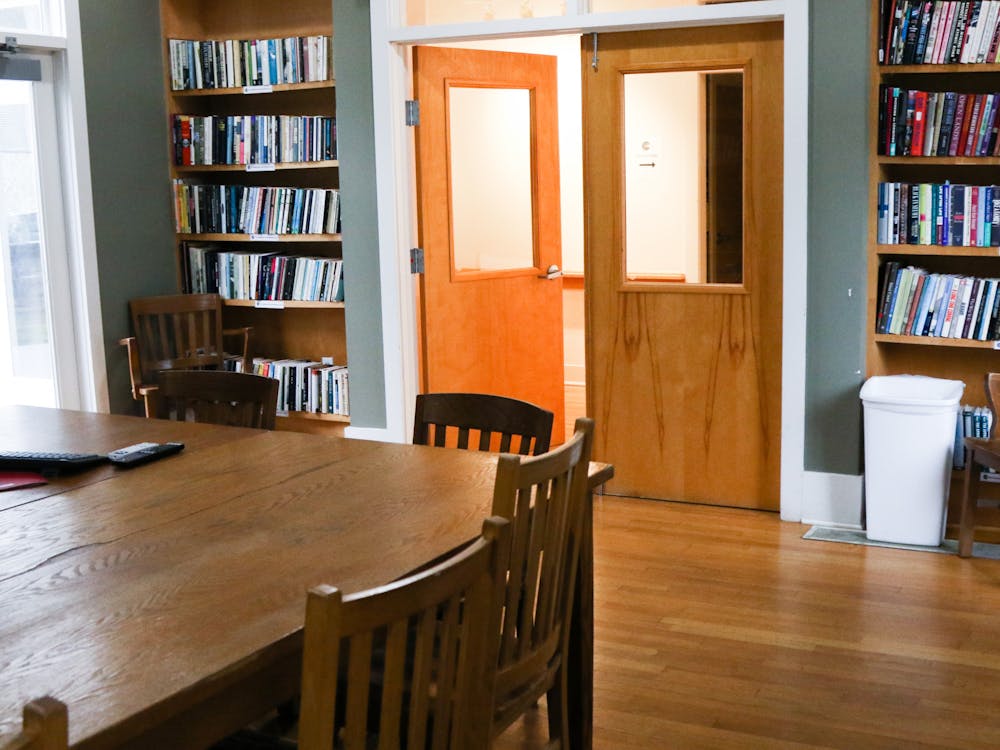
Olukemi said in November that it was the center’s relationship with Duke that prevented her from raising the amount of money she originally indicated she could.
“Our connection with Duke creates an additional burden. Why? Because it’s an $11 billion enterprise. Externally it is known as a white supremacist organization,” Olukemi said. “There’s no way I could go to any social justice funder with everything that I know, and say, please give me five, 10, 15, 20 million. It’s not possible.”
But raising money in sums of these amounts had never been done before by previous directors and was certainly not necessary for the center to remain fiscally stable, according to Rankin and John Biewen, a former CDS staff member who was director of its audio program since 2006 and was recently laid off.
The center’s endowment has been stable at over eight figures for years, Rankin said. Biewen himself had raised money to support his own audio documentary programs on the order of hundreds of thousands of dollars over his time at the center.
In the March 2 staff-wide meeting, Olukemi and the center’s board painted a picture of a quasi-endowment that had been deeply tapped into for program funding.
At the same time, Olukemi continued to pay the directors of the programs she slashed while shutting down the programs themselves entirely, which left CDS faculty and staff confused as to how exactly the center’s costs were being cut. According to Tyson, program directors are the “primary cost of all the programs.”
“We never could get a straight answer on how that saved money,” Tyson said. “My suspicion is that she hoped that [program directors] would quit. She forbade them to do their work but continued to pay them.”
Unfulfilled promises
In other cases, Olukemi not only didn’t provide graduate assistants with work, but also didn’t pay them the compensation they were promised.
The center offered Motta and Zubizarreta positions as graduate assistants for the academic year in September. The two were each promised compensation of $6,100 for their work, as well as an award of around $25,000 for the year from the Graduate School. Once hired, both quit their previous jobs — Motta worked at the Power Plant Gallery and the Arts Annex, and Zubizarreta was a graduate assistant at the Arts Annex.
Conversations about starting the job kept getting postponed in the fall semester, according to Motta and Zubizarreta. A first meeting was set for January, four months after they had been hired.
“When we got to our first meeting it was like, ‘Oh, we still don’t know if you guys can work.’ Which came as a surprise to both of us because they had set up a meeting like we were going to start working,” Zubizarreta said.
She said the two were assured they would still receive the scholarship during that meeting. But when she started asking about the stipend, CDS staff members expressed hesitation.
Then in late February, the two received an email from Olukemi that said that “due to circumstances beyond [the center’s] control,” they would no longer be able to offer them the $6,100 they had been promised. Both students were presented with two options: do the job without the $6,100 compensation and receive the $25,000 tuition remission, or decline the job and not receive any of it.
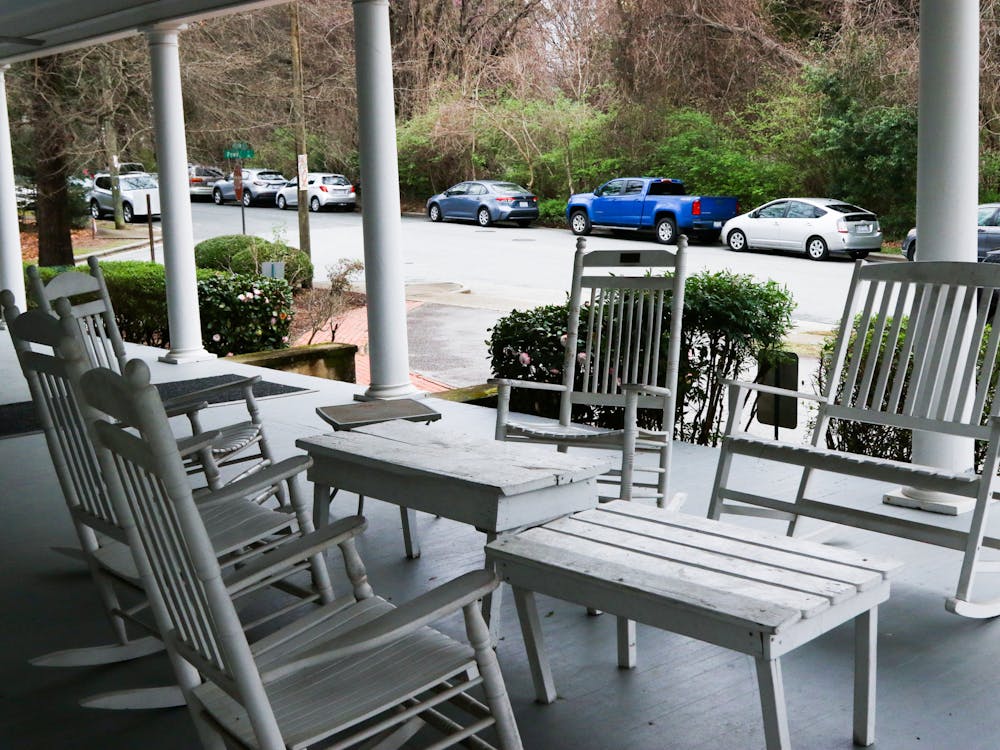
When asked why she thought the center suddenly changed their terms, Motta, in late February, said, “I would love to have a reason, but I genuinely don’t know. This is why I’ve been feeling like I’m crazy for months. I go back and forth if I’m being grateful or if I’m in the wrong and should just take it and shut up.”
The two got in contact with an ombudsman and the Graduate School in March. They will now receive their full stipend of $6,100 — not from the center, but from the Graduate School — as well as their scholarship.
By the end of the semester, the two will have worked about a month of a job that was supposed to last seven. They emphasized that their disappointment “wasn’t just about the money,” but also the loss of a job that they were sure would have provided a unique educational opportunity.
“I wanted to work this job. I came here because of CDS. To be an undergraduate studies fellow at CDS is huge,” Motta said.
She said the silence from CDS and Olukemi — on her fellowship, but also the state of CDS at large — meant she, along with other students, were “robbed” of the ability to make an informed decision. She questioned who Olukemi is looking out for as “it’s not her staff, it's not the faculty, it’s not students.”
“You’re robbing undergraduates of choosing to take a class because they don’t know if this degree will be there. [The center] robbed me of the decision to stay in my job that I already had,” she said.
The role of the board
If the finances presented such an issue, it was the board’s responsibility to step in at that time, according to Rankin.
“The board is bordering on dereliction of duty because ultimately the buck stops with them,” Rankin said. “They are in control of that [quasi-endowment], not Duke. It’s invested in DUMAC but it’s owned by the Center for Documentary Studies, Inc., and that board is responsible for all. And if they’re letting it erode and winnow away and hiring somebody that’s not doing right … it’s their duty to fix it.”
After the recent string of resignations, only six members, including Olukemi, remain listed on its website. According to CDS bylaws, the number of members on the board cannot fall below seven.
Two current board members are working with Duke administrators to onboard new members, according to an email sent from Olukemi to CDS faculty and staff on April 10 and obtained by The Chronicle.
The Chronicle reached out for comment to the board members that resigned: Von Diaz, Serges Himbaza, Shambhavi Kaul and Deborah Willis. Kaul was the only former member to respond.
“It is with a heavy heart that I stepped down from the CDS board. The institution is going through profound changes and I found myself unable to contribute properly to the process,” Kaul wrote. “I remain committed to CDS’s mission and to advocate for documentary studies at Duke. When the right moment presents itself, I remain open to serving once again.”
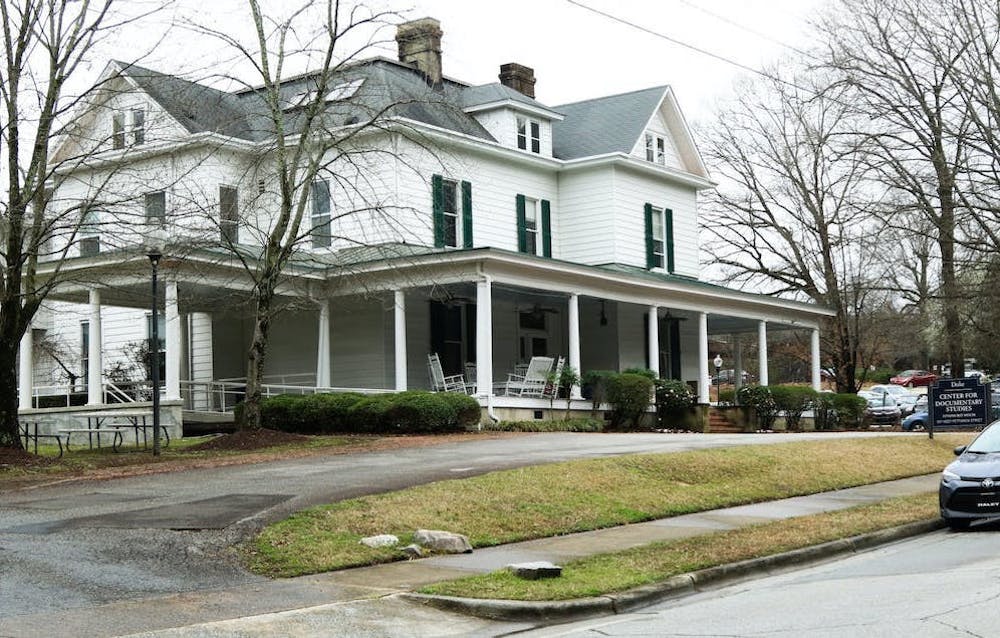
A new vision for CDS
In the March 2 meeting between CDS leadership and its faculty and staff, Olukemi presented her vision to transform the center from one that focuses on traditional documentary work to “applicable media.” Faculty and staff suspect that Olukemi hopes this new model will bring the center into a more acceptable fiscal situation.
“Honestly, [Olukemi] could not appear to define ‘applicable documentary,’” said Tyson. “... She had PowerPoints. I thought they were kindergarten level. And then [when] asked to elaborate on them, she really could not.”
Rankin said that one of his colleagues, during the meeting, gave a monologue about how the plan made CDS sound “like a startup.”
Olukemi’s idea for the CDS is something “quite different” from what the center’s founding mission was — a place where documentary work as an art form can intertwine with the academic enterprise of the University, according to Tyson.
“I think she's just trying to rip the thing down to the studs and start over,” he said. “I don't think she understands what we do or what value it might have. This isn’t her realm of experience… she has never worked in this part of producing documentary.”
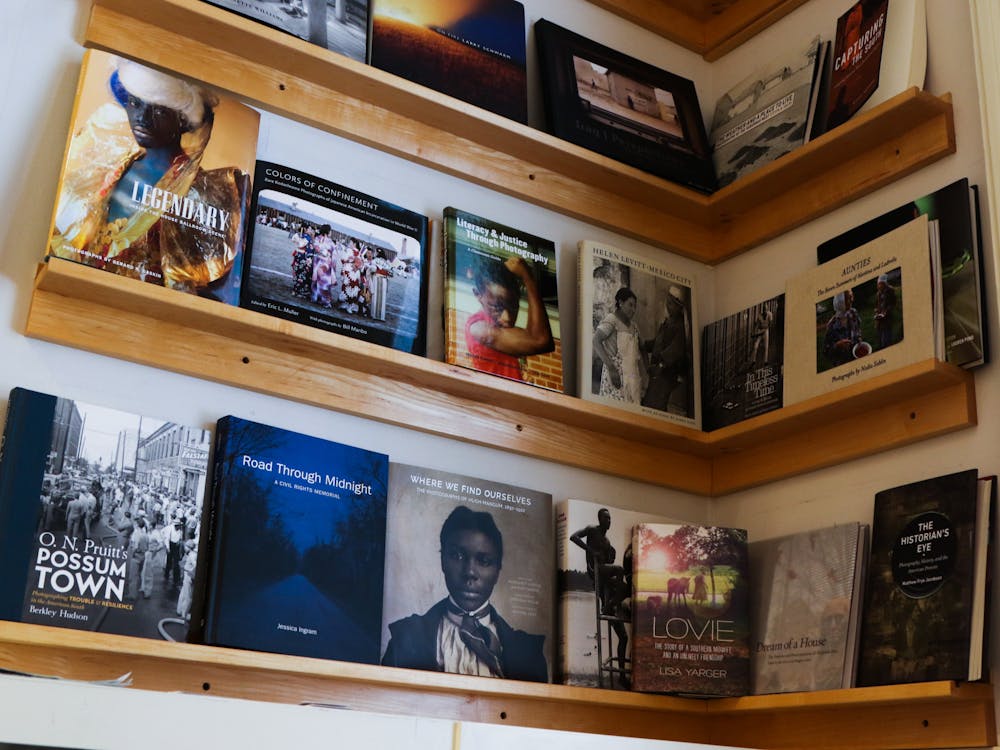
He added that much of what Olukemi defined as “applicable media” is work that the center already does produce. Other examples of applicable media that Olukemi referenced were not reflective of true documentaries, according to Tyson. For example, Olukemi proposed partnering documentarians with researchers in biomedical engineering or in the Nicholas School of the Environment as part of an applicable media research arm.
Tyson noted although someone could do documentary work about biomedical engineering, documentarians often pursue their own subjects and passions, drawing on their unique experiences and education.
“She said that we were going to stop contemplating documentary and start creating documentary, which is preposterous,” Tyson added. “If anything, what we do is create important documentary work and teach those skills to undergraduates and graduate students.”
Smith, a senior at Duke whose work focuses on telling the stories of Indigenous communities, echoed Tyson’s sentiment that students are creating, not just contemplating, documentary.
“Documentary studies has been the only place at Duke where I’ve been able to explore issues important to my own identity,” he said.
In Smith’s first documentary studies class at Duke, titled “Small Town USA,” he designed his own semester-long documentary project on a Native author in Hillsborough, N.C. In fall 2021, after being awarded the Power Plant Gallery Professional Development Award, Smith designed an installation, “still\ˈstil \,” based on his work on Indigenous peoples. The gallery was founded by CDS and the master of fine arts program in experimental and documentary arts in 2013.
To Smith, what sets Duke’s documentary studies program apart from other schools’ is “its commitment to the academic and theoretical study of documentary,” including teaching artists about the ethics behind documentary work.
“In Indigenous communities, we have had a ton of harm done as a result of documentarians coming into our communities, extracting information, using it in ways that the community thinks it should not be,” he said. “But if you study that for a few months through the doc studies program, you maybe are less inclined to commit colonialism.”
‘Need to get involved’
Rankin said that because of the independence afforded to CDS, the University is “just waking up to the fact that they need to get involved.”
Duke’s review committee, established in March, is tasked with examining the center’s next steps by interviewing key stakeholders and community members, according to Chris Simmons, interim vice president for public affairs and government relations. A survey released on April 11 invited faculty, staff, students and community members to share their feedback on their “vision for the future of CDS.”
The committee is chaired by Sarah Wilbur, associate professor of the practice of dance; Bill Adair, Knight professor of the practice of journalism and public policy; Douglas Jones, associate professor of theater studies; Associate Professor of English Aarthi Vadde; and George Vanberg, Ernestine Friedl distinguished professor of political science.
Duke’s interim Provost Jennifer Francis expects to receive a report and recommendations from the committee later this spring, according to Simmons.
Now the community's eyes are on Duke and the center in the coming months and the next academic year. Some hold out hope for a revival of the center’s programming and look to regain community lost. Others wonder if the relationship between the center’s leadership and the documentary community is too damaged to repair.
Which side — the center’s leadership or the people it serves — will win in the end, Motta asks? She knows who she thinks is losing right now as the center sits stagnant, far from what it was nearly two years ago — it’s the faculty, the staff and the students, she said.
“At the end of the day, all the work that [students] do emancipates people. And that’s why I think it’s beautiful,” Motta said. “[But all this] feels like it’s a cutting-off of the wings of students.”

Milla Surjadi is a Trinity junior and a diversity, equity and inclusion coordinator of The Chronicle's 119th volume. She was previously editor-in-chief for Volume 118.

Adway S. Wadekar is a Trinity junior and former news editor of The Chronicle's 119th volume.

